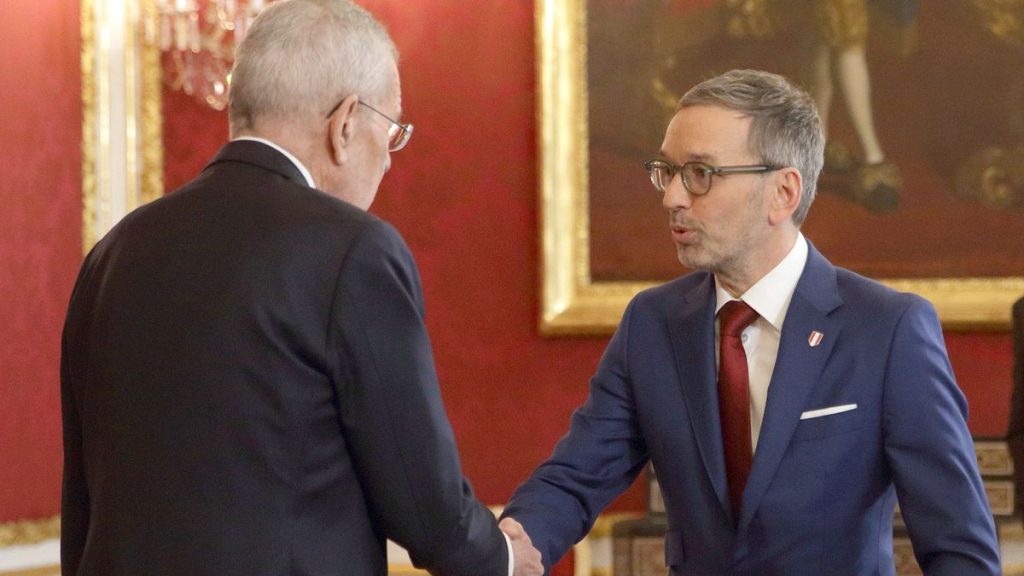The Austrian political landscape is on the precipice of a significant shift, with the potential for the far-right Freedom Party (FPÖ), led by Herbert Kickl, to form the nation’s first far-right-led government since the end of World War II. This development follows a tumultuous period of political maneuvering after the September parliamentary elections, which saw the FPÖ emerge victorious with 28.8% of the vote, surpassing the incumbent Austrian People’s Party (ÖVP) led by Karl Nehammer. The president’s mandate to Kickl to explore coalition possibilities highlights the FPÖ’s electoral dominance and the lack of viable alternative government formations.
The path to this potential far-right leadership has been paved by a series of political deadlocks. Initially, President Alexander Van der Bellen tasked Nehammer with forming a government. However, his attempts to create a coalition excluding the FPÖ proved unsuccessful, primarily due to a widespread reluctance among other parties to collaborate with the far-right. This resistance, coupled with the ÖVP’s internal refusal to partner with the FPÖ under Kickl’s leadership, ultimately led to Nehammer’s resignation. With the ÖVP now signaling a potential willingness to work with Kickl, the prospect of an FPÖ-led government has become increasingly likely, especially given the absence of other viable coalition options and the FPÖ’s projected strength in potential snap elections.
The FPÖ’s resurgence and potential ascent to power raise concerns due to the party’s controversial stances and rhetoric. Under Kickl’s leadership, the party has campaigned on a platform emphasizing strict border controls, advocating for the suspension of asylum rights, and promoting the concept of “remigration” to achieve a more homogenous society. This hardline stance on immigration aligns with a broader nationalist and populist narrative that resonates with a segment of the Austrian electorate concerned about national identity and cultural preservation in the face of globalization and migration flows.
Further complicating the situation is the FPÖ’s stance on foreign policy. The party’s opposition to sanctions against Russia, its criticism of Western military support for Ukraine, and its desire to withdraw from the European Sky Shield Initiative have raised eyebrows within the international community. These positions signal a potential shift in Austria’s foreign policy alignment and raise questions about the country’s future role within the European Union. Kickl’s frequent criticism of Brussels “elites” and advocacy for repatriating certain powers from the EU back to Austria further underscore the party’s eurosceptic tendencies.
The potential FPÖ-led government, therefore, presents a complex and potentially volatile scenario for Austria and the European Union. While the ÖVP’s initial resistance to collaborating with Kickl suggested potential internal divisions and concerns about the FPÖ’s extremist leanings, the evolving political landscape seems to offer no viable alternatives. The prospect of a new election potentially strengthening the FPÖ’s position further limits the options available to other political actors. This situation underlines the profound shifts in Austrian politics and the increasing influence of far-right ideologies.
The current situation marks a significant departure from Austria’s previous experiences with far-right participation in government. While the FPÖ has been part of coalition governments in the past, it has traditionally served as a junior partner. The period from 2017 to 2019 witnessed an ÖVP-FPÖ coalition, which ultimately collapsed due to scandal under the FPÖ’s then-leader. During this period, Kickl himself served as interior minister, a role in which his provocative rhetoric and hardline policies often stirred controversy. The current circumstances, however, present the possibility of the FPÖ assuming the leading role in government, a scenario with potentially far-reaching implications for both domestic and foreign policy. This shift in power dynamics within the Austrian political system underscores the significant changes underway and the challenges ahead for navigating the complexities of a potential far-right-led government.














